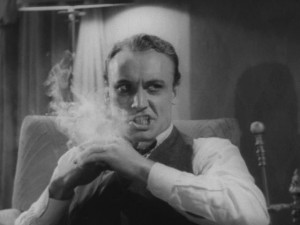As we approach the end of national Medical Marijuana Week, it seems like a reasonable time to review where older people stand on this issue and the larger matter of a more comprehensive legalization. The research shows what you already know: on pot, people seem to have difficulty making a clear decision. Boomers are split into two camps.
In October, the Gallup Poll found that a record 50 percent of Americans favored legalizing the ubiquitous weed. Younger folks (18-29) are very keen on full-on legalization, with 62 percent supporting it. For each subsequent cohort, the numbers drop: among the 30-49 group, support is 56 percent; among those 50-64, support is 49 percent. Then there’s a big drop-off, with just 31 per cent of those 65 and older supporting it.
To put this in context: if you were college-age in the Summer of Love—that is, 22 in 1967—or younger, the odds are roughly even that you think marijuana is just fine (or at least no worse than alcohol). If you were already out in the world, trying to hold down a job and raise a family, you are more likely to have missed some that societal shift and the odds are only about one in three that you’re OK with the occasional toke.
There are probably more sophisticated ways of considering the data, but the Summer of Love interpretation jumps out at us.
Earlier Gallup research (2010) showed that 70 percent of the country was in favor of legalization to alleviate pain and suffering, which looks like pretty strong support—one could say a mandate—for medical marijuana. Already 16 states and the District of Columbia have some form of medical marijuana; 16 other states are considering legislation.
Old people—even those on the wrong side of the Summer of Love—might starting shifting into the pro-ganja crowd as word gets out that pot seems tailor-made for their ailments. A good example is the work being done by Robert Platshorn, a 69-year-old former pot smuggler and one of “Florida’s most prominent activists in the growing push to legalize medical marijuana.” Miami’s New Times profile of Platshorn portrays him as an earnest, informed, clean-cut and sober proponent, traveling from Florida’s synagogues to nursing homes and beyond to raise awareness about the benefits of the drug and the details of the legislation.
The story sketches the plight of several seniors—including a husband seeking to score something to help his MS-stricken wife—and Platshorn’s own story. And his strategy: “Old people vote,” he says. “Nothing scares a politician like an elderly constituent.”
It is easy to project that seniors’ resistance to legalization will slowly evaporate because (a) the foot-draggers will eventually stop caring or give up the ghost and (b) marijuana seems like a made-to-order pharmaceutical for America’s graying population. The drug’s benefits include an alleviation of pain and a reduction of inflammation. It helps people sleep. If other drugs upset your stomach, marijuana reduces nausea. And it’s easy to grow on your own, so it’s cheap.
As word gets out about the economics of pot, look for the momentum to grow. Try to keep old people from something that promotes sleep, reduces pain and can be had for pennies. Try it. We dare you.
Photo of actor Dave O’Brien in the 1936 cult classic Reefer Madness, via Wikimedia Commons










